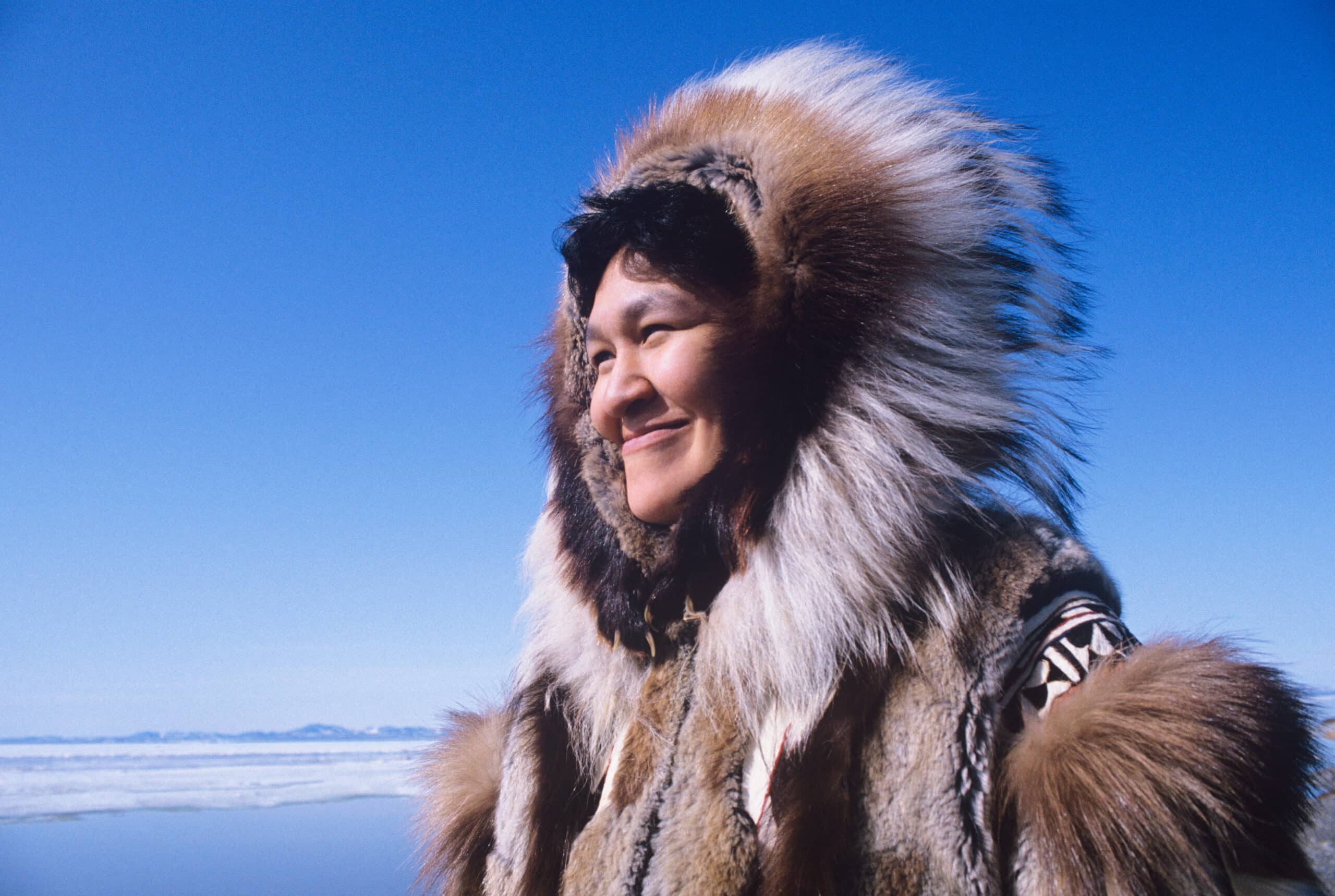
Victory Stories
Ensuring That Arctic Indigenous Voices Are Heard
Warming at nearly four times the global rate, the Arctic is undergoing rapid transformation as melting sea ice unveils previously inaccessible shipping routes. As global powers rush to capitalize on these new passages, rising marine traffic threatens to escalate pollution, disrupt fragile marine life, and jeopardize the well-being of Arctic Indigenous communities who have long depended on these lands and waters. Each vessel slicing through these vulnerable environments compounds the risks, raising urgent questions about who will shape the future of the Arctic.
Indigenous peoples have too often been left out of crucial decisions affecting their homelands and livelihoods. For the Inuit — whose stewardship of the Arctic spans time immemorial — gaining influence over international shipping regulations is essential to safeguarding their future. Inuit communities rely on the ocean for harvesting, food security, transportation, and economic activity, giving them a distinct perspective and knowledge that has long been excluded from global decision making.
Now, in a historic breakthrough, the Inuit Circumpolar Council (ICC) has become the first Indigenous organization ever granted permanent consultative status at the International Maritime Organization (IMO). Representing over 180,000 people across Alaska, Canada, Greenland, and Russia’s Chukotka region, the ICC’s new role ensures Inuit voices will be heard where critical shipping policies are made — allowing them to advocate directly for the protection of their communities, lands, and waters. All beings are benefited when Indigenous communities lead these efforts.
The IMO, a specialized agency of the United Nations, serves as the global authority on shipping regulations, setting international standards that its 176 member states are expected to follow. Its work covers a wide range of maritime issues, including vessel design, pollution prevention, safety protocols, and emergency response. Through binding conventions and technical guidelines, the IMO shapes how the world’s shipping industry operates. Its decisions carry global weight — shaping the way commercial vessels operate across international waters and how environmental protections are enforced. The ICC’s input is essential to the designing of solutions within the IMO that protect the long-term health of the Arctic by centering Indigenous knowledge and experience.
This victory builds on years of contribution to the IMO by the ICC. In 2021, the ICC became the first Indigenous Peoples organization to be granted provisional consultative status at the IMO, joining a select group of just 85 non-governmental organizations with that designation. Since then, it has contributed to strengthening marine safety and environmental protection through expert input. To achieve permanent consultative status, the ICC had to meet a range of criteria, including demonstrating its ability to provide unique and valuable expertise. With this designation, the ICC will be able to build on the significant body of work that was done under provisional status, including submitting official documents, and continue to offer crucial advice and feedback on shipping policies.
This milestone reflects the growing recognition of the importance of Indigenous leadership in Arctic governance — an approach Friends of the Earth is proud to support. FOE advocates for Arctic Indigenous voices to be heard, collaborates with Indigenous organizations to advance shared environmental goals, and seeks to center Indigenous voices and knowledge in the fight for our planet’s future. As a member of the Clean Arctic Alliance — a coalition of 24 non-profit organizations — FOE also campaigns for stronger protections for Arctic ecosystems, wildlife, and communities. The ICC’s achievement is a powerful step in the broader movement to ensure those most connected to and affected by what’s taking place in the Arctic are centered in decision-making.
More Victory Posts
Ways to Support Our Work

Read Latest News
Stay informed and inspired. Read our latest press releases to see how we’re making a difference for the planet.

See Our Impact
See the real wins your support made possible. Read about the campaign wins we’ve fought for and won together.

Donate Today
Help power change. It takes support from environmental champions like you to build a more healthy and just world.

